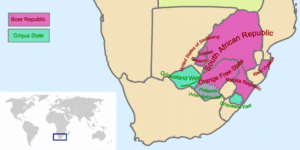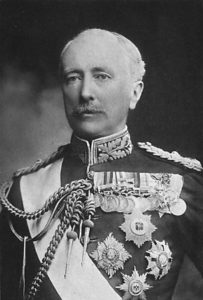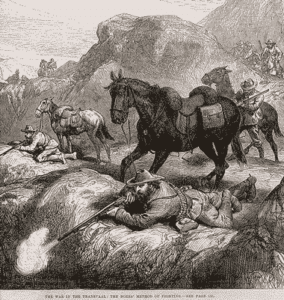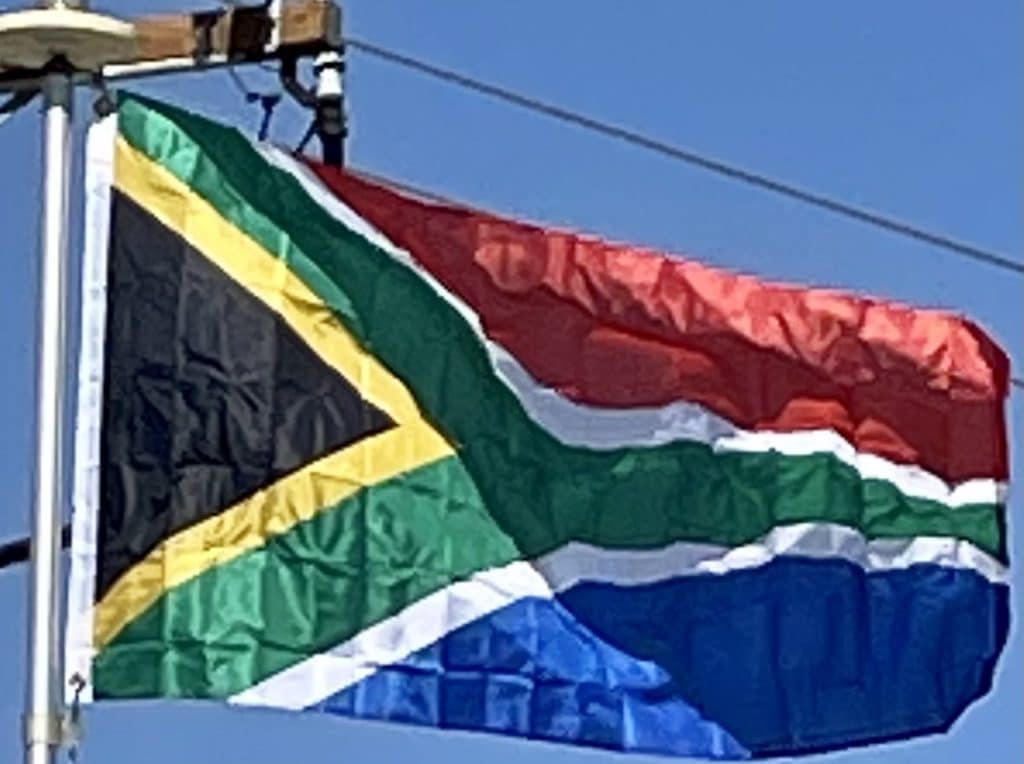
The discovery of diamonds in 1867 and gold in 1884 in the interior started the Mineral Revolution and increased economic growth and immigration. This intensified British efforts to gain control over the indigenous peoples. The struggle to control these important economic resources was a factor in relations between Europeans and the indigenous population and also between the Boers and the British.
On 16 May 1876, President Thomas François Burgers of the South African Republic (Transvaal) declared war against Sekhukhune and the Pedi. Sekhukhune managed to defeat the Transvaal army on 1 August 1876. Another attack by the Lydenburg Volunteer Corps was also repulsed. On 16 February 1877, the two parties signed a peace treaty at Botshabelo. The Boers’ inability to subdue Sekhukhune and the Pedi led to the departure of Burgers in favor of Paul Kruger and the British annexation of the South African Republic (Transvaal) on 12 April 1877 by Theophilus Shepstone, secretary for native affairs of Natal. In 1878 and 1879 three British attacks were successfully repelled until Garnet Wolseley defeated Sekhukhune in November 1879 with an army of 2,000 British soldiers, Boers and 10,000 Swazis.

The Anglo-Zulu War was fought in 1879 between the United Kingdom and the Zulu Kingdom. Following Lord Carnarvon‘s successful introduction of federation in Canada, it was thought that similar political effort, coupled with military campaigns, might succeed with the African kingdoms, tribal areas and Boer republics in South Africa. In 1874, Henry Bartle Frere was sent to South Africa as the British High Commissioner to bring such plans into being. Among the obstacles were the presence of the independent states of the Boers, and the Kingdom of Zululand’s army. The Zulu nation defeated the British at the Battle of Isandlwana. Eventually, though, the war was lost, resulting in the termination of the Zulu nation’s independence.
Boer Wars:
The First Boer War was a rebellion of Boers against the British rule in the Transvaal that re-established their independence.

The Boer Republics successfully resisted British encroachments during the First Boer War (1880–1881) using guerrilla warfare tactics, which were well-suited to local conditions. The British returned with greater numbers, more experience, and new strategy in the Second Boer War (1899–1902) but suffered heavy casualties through attrition; nonetheless, they were ultimately successful. Over 27,000 Boer women and children died in the British concentration camps.
Independence:
Within the country, anti-British policies among white South Africans focused on independence. During the Dutch and British colonial years, racial segregation was mostly informal, though some legislation was enacted to control the settlement and movement of indigenous people, including the Native Location Act of 1879 and the system of pass laws.
Eight years after the end of the Second Boer War and after four years of negotiation, an act of the British Parliament (South Africa Act 1909) granted nominal independence, while creating the Union of South Africa on 31 May 1910. The Union was a dominion that included the former territories of the Cape, Transvaal and Natal colonies, as well as the Orange Free State republic.
